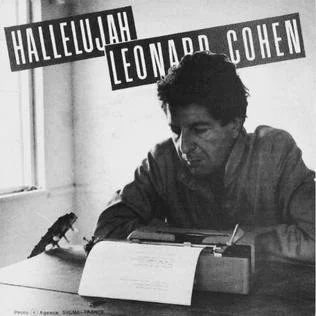Leonard Cohen’s “Hallelujah” is a masterpiece that transcends the boundaries of music and poetry. First released in 1984, it has since been covered by numerous artists, each adding their own flavor. The song’s complex blend of spirituality, love, and human struggle has resonated with listeners around the world. But what does “Hallelujah” really mean?

Song Meaning Analysis
In “Hallelujah,” Cohen takes the listener on a journey through love, faith, and loss, using biblical references and metaphors to convey his message. The song is divided into multiple verses, each reflecting on different facets of these experiences.
Verse 1: “Now I’ve heard there was a secret chord…”
The opening verse establishes the song’s connection to spirituality, referencing King David’s harp playing from the Bible. Cohen’s “secret chord” symbolizes a deeper understanding or connection to the divine. The use of musical imagery suggests that through music, one can reach a higher plane of emotion or truth. The soft piano accompaniment enhances the introspective tone.
Verse 2: “Your faith was strong but you needed proof…”
This verse introduces the story of David and Bathsheba, where David’s lust leads him into moral conflict. Cohen uses this biblical narrative as a metaphor for the fragility of faith and love. The line “She broke your throne and cut your hair” refers to the fall of King David, symbolizing how human desires can cause one’s downfall. The haunting melody intensifies the sense of inner turmoil.
Verse 3: “Maybe there’s a God above…”
Cohen shifts from the biblical to the personal in this verse. Here, he questions the nature of love and God, suggesting that true meaning lies in acceptance of both joy and suffering. The juxtaposition of sacred and secular reinforces the song’s exploration of faith in both the divine and the human experience. The slow, steady rhythm reflects a sense of contemplation and uncertainty.
Verse 4: “And even though it all went wrong…”
This verse embodies the theme of resilience. Despite betrayal and heartbreak, the singer continues to find solace in saying “Hallelujah.” This suggests that the word is not just a declaration of praise but an acceptance of life’s inevitable imperfections. The gentle vocal delivery underscores the song’s message of emotional endurance.
Key Themes and Symbolism
“Hallelujah” weaves together themes of spirituality, love, and struggle. Cohen uses biblical metaphors, such as the story of David, to symbolize the tension between faith and doubt, and love and loss. The repeated refrain of “Hallelujah” can be seen as both a cry of joy and a lament, reflecting the complexity of human emotion. Through its use of religious symbolism, the song suggests that faith and love are intertwined with suffering.
Historical Context
Released on the 1984 album Various Positions, “Hallelujah” initially went under the radar. It wasn’t until Jeff Buckley’s 1994 cover that the song reached mainstream recognition, though Cohen’s original remains deeply revered. Cohen, a Canadian poet and songwriter, often explored themes of spirituality and existential reflection in his music. “Hallelujah” is a culmination of these themes, blending religious imagery with personal introspection.
Critical Reception and Cultural Impact
Although “Hallelujah” wasn’t a major hit upon its release, it has since become one of Cohen’s most celebrated works. Jeff Buckley’s rendition brought the song into popular consciousness, and it has been used in numerous films, television shows, and public events. Cohen’s original has been praised for its depth and complexity, with Rolling Stone ranking it among the greatest songs of all time.
The song has been covered by over 300 artists, including John Cale, k.d. lang, and Rufus Wainwright, each adding their own interpretation. It has become a staple in both religious and secular settings, making its way into weddings, funerals, and moments of reflection worldwide. In 2019, Cohen’s version of “Hallelujah” was inducted into the Grammy Hall of Fame, cementing its status as a timeless classic.
Conclusion
Leonard Cohen’s “Hallelujah” is a profound meditation on love, faith, and the human condition. Its blend of biblical metaphor, poetic lyrics, and haunting melody make it a song that continues to resonate with listeners from all walks of life. Through its emotional depth and spiritual exploration, “Hallelujah” remains a universal anthem of resilience and reflection.
Sources:
- Leonard Cohen, Various Positions, Columbia Records, 1984.
- “Hallelujah: Leonard Cohen’s Masterpiece,” Rolling Stone, https://www.rollingstone.com/.
- “Leonard Cohen Interview,” The Guardian, 2009.



